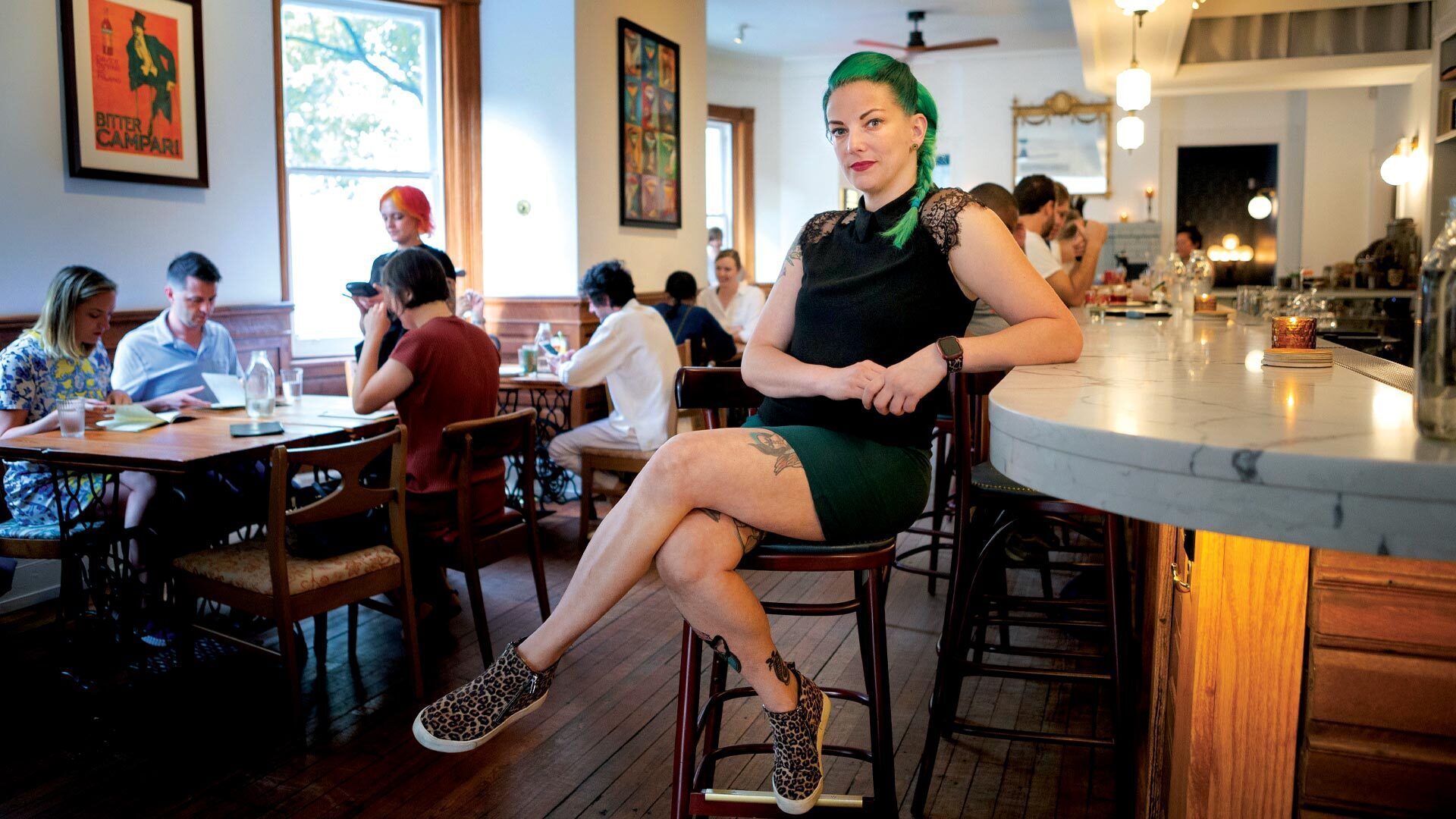- October 18, 2023
- By Annie Krakower
From dishwashing in an Edgewater, Md., crab house when she was 14 to managing a Starbucks as a UMD student to tending Baltimore bars post-graduation, Amie Ward ’05, M.A. ’08 has seen too many customers who cross the line—and not just the bad tippers or cocktail complainers.
Whether through excessive flirting, inappropriate comments or gender-based violence, a study found that hospitality and service employees experience more sexual harassment than workers in any other industry. Now, after decades in the trenches herself, Ward is combating that troubling trend as executive director of Safe Bars, a nonprofit that teaches alcohol-serving staff how to intervene and prevent cases of discrimination or aggression.
“We are serving you, but we’re not your servants,” she says. “There’s a lot of entitlement and power dynamics that go into those spaces.”
A kinesiology major at the University of Maryland, Ward delved into the department’s physical cultural studies program as a master’s student and “totally fell in love with everything in terms of social justice and advocacy in terms of the body.”
She was bartending at the time, and her knowledge of exercise physiology and biomechanics led her to realize that bars aren’t ergonomically designed, causing pain from long hours standing, poor posture and repetitive movements. Also an American Council of Exercise certified health coach, she started services as what she calls “the Healthtender” in 2015, offering hospitality employees pre- and post-shift stretching techniques, self-massage tips and even nutritional guidance.
But physical health wasn’t the only problem: Alcohol is involved in half of reported sexual assaults. Ward joined Safe Bars that same year as a trainer, helping bars and other venues create safe workplaces through sessions on active bystander skills, empowerment and self-defense, and de-escalation techniques. In October, with founder Lauren Taylor stepping down, Ward took the helm.
She creates the curriculum for training sessions and joins other instructors as they explain relevant stats and role-play scenarios. Strategies could be as simple as asking a suspicious customer how they’re doing or telling a coworker if something feels off, says Ward.
“The confluence of Amie as a gym teacher and as a bar manager and a sexual violence prevention trainer is above and beyond what most people get to experience when we talk about trainings,” says trainer Zack Sanders, senior bar manager and spirits educator at Los Angeles’ Mirate bar and grill, who says he and his staff use the Safe Bars strategies daily. “Our trainings are interactive and fun. People all the time come up to us and are like, ‘I didn’t expect to like this. I thought I was going to be taking a nap.’”
Safe Bars now has more than 35 chapters across the United States and Canada. As it continues to grow, Ward hopes to break into the Greek life scene to teach the same skills to college students.
“You can party and you can have a good time—it’s just being more cognizant of your surroundings and being able to say, ‘Hey, knock it off,’ when some behavior looks problematic,” she says. “Teaching people early intervention and being more responsible with alcohol is the way to go.”
This story is featured in the Fall 2023 issue of Terp magazine. Find all the stories online at terp.umd.edu.
Topics
PeopleUnits
School of Public Health